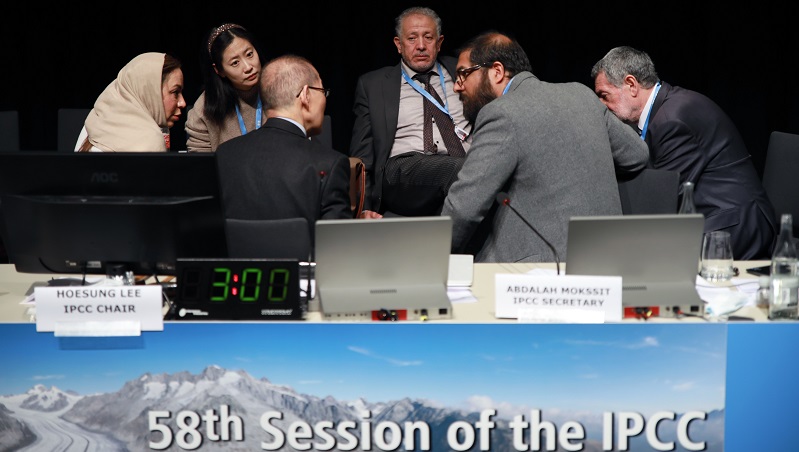Governments clashed last week over the language used to describe their preferred green technologies in the most recent report from the scientists at the Intergovernmental Panel on Climate Change.
A group led by Saudi Arabia advocated for a focus on removing carbon from the atmosphere using carbon dioxide removal (CDR) and carbon capture and storage (CCS) technology as states gathered in Switzerland to ratify the report.
However, a number of countries, mostly from Europe, pressed for the report to highlight the importance of wind and solar energy in battling climate change and to underscore how much cheaper it has just become.
The IPCC synthesis report summarises the latest scientific knowledge on climate change.
Alongside the full report, the IPCC publishes a shorter document called the “summary for policy-makers” which is approved by governments at a week-long session in the Swiss city of Interlaken.
Read Also: at-least-80-of-worlds-important-sites-for-biodiversity-on-land-currently-contain-human-developments
Although the scientists who wrote the report are in the room to push back, government negotiators regularly try to lobby for the inclusion of their priorities in the text. The report needs to be approved line-by-line.
A think tank called IISD is the only organization allowed to report on the talks.
According to their summary, a group of European nations wanted the report to say that solar and wind electricity “is now cheaper than energy from fossil fuels in many regions”.
Germany said this sentence was of “paramount” importance but, according to IISD, Saudi Arabia “strongly opposed the inclusion of the sentence”.
Story adapted from Climate Home News
